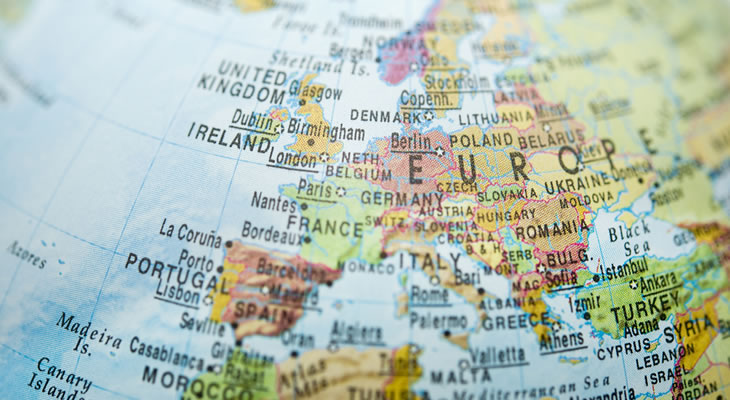GBP Exchange Rates Steady – Angela Merkel Sparks Hope for Bespoke Brexit Trade Deal
The Pound Euro (GBP/EUR) exchange rate could see some gains in the near-term if German Chancellor Angela Merkel’s latest comments reflect a changing attitude within the bloc.
The European Union’s ongoing Brexit stance has been that Downing Street cannot ‘cherry-pick’ a bespoke trade deal, with EU Chief Negotiator Michel Barnier reflecting this by insisting that the UK’s choices are limited to a deal like Canada’s – where the UK suffers a massive downgrade in trade relations, or a trade deal akin to Norway’s – where the UK would be stuck continuing to take orders from the bloc.
Merkel has broken ranks, however, encouraging UK PM Theresa May on Friday to push for something in-between.
Speaking in Germany at a press conference the Chancellor stated:
‘In the end, there has to be a fair balance, of variations, on the single market, for example. We as the 27 will ensure that it’s as close as possible, but that there’s a difference from current membership’.
This boded extremely well for the UK’s post-Brexit prospects, though Sterling investors will likely continue to remain cautious until progress is made, and demonstrated, on the Brexit transition front.
Pound Euro (GBP/EUR) Exchange Rate Outlook – Domestic Data Releases to Keep an Eye on this Week
The Pound Euro (GBP/EUR) exchange rate could see significant volatility this week on a wide range of pertinent ecostats.
For the UK, markets will be keen to assess a speech from Bank of England (BoE) Governor Mark Carney, due later tonight, wage growth and employment readings, due on Wednesday and, last but not least; the UK’s growth figures, due on Thursday.
Out of all of these the most pertinent will likely be the UK’s wage growth and GDP readings, with the BoE liable to move for an earlier-than-expected rate hike if wages have accelerated faster than expected.
In respect to growth readings, markets currently expect UK GDP to hold steady at 1.5% year-on-year, with a quarter-on-quarter reading of 0.5%.
For the bloc, markets will be looking to assess Germany’s ZEW surveys, due on Tuesday, Markit PMI releases, due on Wednesday and the highly anticipated inflation readings, due on Friday.
Inflation in the bloc continues to be a source of pessimism for the European Central Bank (ECB) and this is reflected in the market forecast, with an expected slip in the January reading from 1.4% to 1.3%.
Whilst analysts do not currently expect the central bank to move for a rate hike anytime soon, consumer prices contracting, rather than rising, would still be seen as a significant negative for the single currency.
Germany’s Grand Coalition Vote in the Spotlight – What can we Expect for the GBP/EUR Exchange Rate?
Germany’s ongoing political situation could take centre stage for the bloc in the coming weeks as markets prepare for the highly significant Social Democrats (SPD) vote on a ‘grand coalition’ with Merkel’s Conservatives (CDU).
The SPD has experienced a rather self-destructive couple of weeks, with previous leader Martin Schulz stepping down, likely to be replaced by candidate Andrea Nahles.
Merkel and Nahles did find a silver lining, however, in the form of a recent poll by Kantar Emnid, which revealed that two-thirds of supporters of the SPD backed the coalition government.
According to the poll 66% want a grand coalition, whilst only 30% favour new elections.
This boded well for the party’s imminent vote, but the overall public attitude towards the SPD appears to remain negative, with another poll placing the SPD just one point ahead of the Alternative für Deutschland party (AfD).
Beyond this, the SPD continues to prove fractured by the mere prospect of a new alliance with Merkel – divisiveness that threatens to undermine the results of the vote, which is due on March 4th.
Indeed, if the vote fails then Germany could be faced with a return to the polls, a prospect that could sew massive discord and uncertainty throughout the bloc, and likely limit the upward potential of the single currency.


Comments are closed.